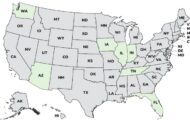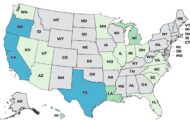A multiagency task force is being created in North Carolina to evaluate the preventive measures that were in place during the 2011 State Fair, when at least 25 attendees were sickened with E. coli O157:H7 in an outbreak linked to human contact with animals in livestock exhibits.
The Centers for Disease Control and Prevention (CDC) has published field notes from its investigation of the October 2011 outbreak, which included eight hospitalizations and four cases of hemolytic uremic syndrome (HUS), a life-threatening complication of toxic E. coli infection that shuts down a person’s kidneys and can cause stroke, heart attack and invasion of the central nervous system (paralysis).
Outbreak investigators found 25 case-patients ranging from 1 to 77 years old. The CDC said the strain of E. coli O157:H7 that infected victims is the eighth most common pattern in its molecular database and has been associated with previous foodborne outbreaks.
“The only exposure associated with illness was having visited one of the permanent structures in which sheep, goats, and pigs were housed for livestock competitions,” the CDC field notes said. “Fair attendees were not intended to have physical contact with animals in the building; however, 25 percent of case-patients (three of 12) and 24 percent of control subjects (five of 21) who visited the building reported direct contact with animals.”
The CDC said the task force will identify additional interventions that could be applied to prevent disease transmission in livestock exhibitions where physical contact with the public might occur. A previous toxic E. coli outbreak linked to a petting zoo at the 2004 North Carolina State Fair resulted in 187 illnesses, 15 of which were complicated by HUS. The 2004 outbreak led to the passage of Aedin’s Law in North Carolina, which created regulations for exhibitions housing animals intended for physical contact with the public.
The CDC’s field notes said the 2011 State Fair exhibits were not subject to Aedin’s Law, but it’s not clear why. Preventive measures such as educational signs and hand-washing facilities were in place based on national guidelines compiled in the 2011 Compendium of Measures to Prevent Disease Associated with Animals in Public Settings.




